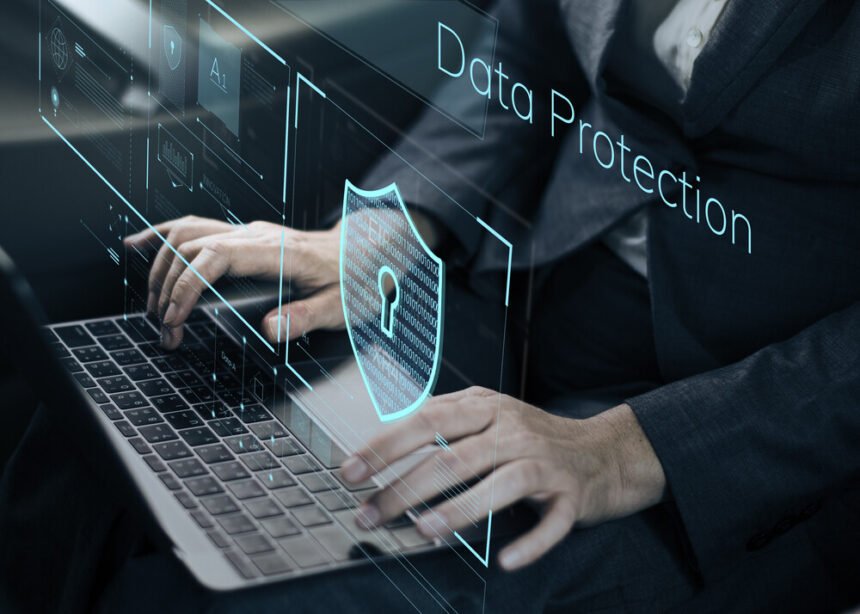Artificial intelligence is incredibly important in the new age of cyberwarfare. Hackers use AI frequently to conduct more vicious attacks. At the same time, cybersecurity experts are using AI to bolster their defenses.
AI has become more important than ever during the COVID-19 crisis. Cybercrimes are up, so artificial intelligence and other big data tools are essential to thwart cybercriminals.
AI is Crucial for Stopping Cybercrime During the Pandemic
According to Computer Weekly, COVID-19 has spurred the largest cybersecurity attack ever, and hackers have businesses of all sizes in their sights. Your company may have made big changes to keep employees safe, but what have you done to protect them from cybersecurity threats related to the virus? You should be more resilient if you use the latest AI cybersecurity technology.
Employees working from home are doing so outside of the corporate office environment, where firewalls, AI-driven enterprise-level antivirus software, and physical security measures help add a layer of security simply not found in the telecommuting environment, where as many as 56 percent of employees are working from their own devices. With COVID-19-related malspam emails up 300 percent since the beginning of the pandemic, and distributed remote teams substantially increasing your organization’s attack surface, you need to take the risks seriously if your company hopes to get through this crisis digitally unscathed. This won’t be possible without the right AI tools at your disposal.
Changes Are Happening Fast, and Hackers Are Taking Notice
The speed with which the COVID-19 crisis went from bad to worse as the virus spread around the world precipitated a rapid transition to remote work for most office workers, even those working for companies who had previously considered themselves thoroughly unable to accommodate telecommuting. Many companies rolled out new AI solutions with their business continuity plans that included transitioning employees to remote work in a matter of days, and many of the technologies that have enabled this sudden transition saw explosions in use, in some cases so much so that some collaborative technologies were strained. For example, early in the crisis, cloud services like Azure struggled to provide enough server bandwidth to cope with the sudden, drastic uptick in users relying on the services to get their jobs done.
The speedy transition to a remote workforce exposed gaps in some companies’ supply chains, forcing them to rapidly claw work back in-house or switch providers. These changes expose vulnerabilities that hackers can exploit, especially as they used more effective AI platforms. Even those companies that didn’t face sudden supply chain issues found themselves scrambling to equip employees with the equipment they’d need to work from home — and many companies chose to allow employees who own their own personal computers to use them for telecommuting, even though those machines are most likely nowhere near as secure as the ones now gathering dust in offices around the world.
Everyone is distracted and emotional, and while companies are focused on dealing with the public health crisis, hackers are taking advantage of that distraction to launch attacks against employees who, in their heightened state of anxiety, are less likely to think clearly about suspicious emails or weird links. Computer Weekly reports that companies have seen an uptick in attacks from keyloggers, password-stealing software, and, especially, phishing emails. Every employee who logs into company servers remotely via a VPN from an insecure machine is creating an access point that hackers can exploit. The increased reliance on cloud services has made more corporate data more accessible to criminals. And employees themselves can pose a direct risk, either because they’re seeking revenge for a poor company response to the pandemic, or because they’re simply not engaged or motivated enough to care about maintaining security protocols.
Take Steps to Keep Employees Safe
There’s no question that the move to remote work was and is necessary to keep employees physically safe and slow the spread of COVID-19. But it’s just as important to keep employees safe in the digital space, too, and protect the company from escalating risks. If possible, issue employees company laptops protected with comprehensive, enterprise-level endpoint security solutions with new AI and big data tools. Follow that up with regular — ideally, weekly — security check-ins from IT to ensure that employees’ security software is optimized, and that they’re being kept abreast of the latest developments in COVID-19-related security threats.
Many employees may need additional support to ensure home wireless networks are secure and that legacy gateways and routers are updated to more secure, newer models, which rely more on AI technology. And the use of collaborative tools like Zoom may need to be minimized, as some companies have experienced frightening intrusions on these platforms, including threat actors capturing and stealing meeting transcripts, recording meetings secretly, or even dropping into meetings unannounced — such that some organizations, like NASA, have gone so far as to ban the platform to prevent these types of breaches.
With most office workers doing their jobs remotely during the ongoing public health crisis, data security is more important than ever, and the risks aren’t expected to go away anytime soon. Do what you can to protect your employees and your company from cyber threats, because we’re all in this together.
AI is Critical to Cybersecurity During the Pandemic
The pandemic has created a number of challenges for businesses struggling with cybersecurity problems. Fortunately, new AI tools are helping stop hackers. Cybersecurity experts will be able to avoid security breaches if they deploy the right AI tools and adapt rapidly enough.

